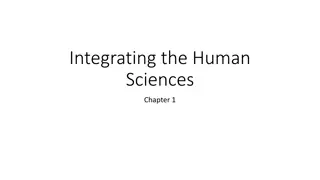Natural Sciences Grade 7
Variables play a crucial role in scientific investigations as they are the elements that change and are measured during experiments. There are two main types of variables - dependent and independent. Dependent variables respond to changes in independent variables, which are manipulated by the experimenter. By controlling and selecting specific variables to change while keeping others constant, researchers can draw meaningful conclusions from their experiments. This content explains the importance of variables in investigations using examples related to heat transfer and boiling water.
Download Presentation

Please find below an Image/Link to download the presentation.
The content on the website is provided AS IS for your information and personal use only. It may not be sold, licensed, or shared on other websites without obtaining consent from the author.If you encounter any issues during the download, it is possible that the publisher has removed the file from their server.
You are allowed to download the files provided on this website for personal or commercial use, subject to the condition that they are used lawfully. All files are the property of their respective owners.
The content on the website is provided AS IS for your information and personal use only. It may not be sold, licensed, or shared on other websites without obtaining consent from the author.
E N D
Presentation Transcript
Natural Sciences Grade 7 Term 3: Energy and Change Heat transfer
Topic 3 Heat transfer Variables Natural Sciences - Grade 7
What are variables Things that change in an investigation, are called variables. It is measurable. It can be seen / observed. During an investigation you only select one variable to change, while the other variables are all kept the same. Examples: time; amount of substance that is used; temperature; type of material used and mass. Natural Sciences - Grade 7
Two types of variables 1. Dependent variable It is also called the output variable. It is the variable that changes in response to the independent variable that is being changed. It is also the thing that you observe or measure and the experiment s result. Natural Sciences - Grade 7
Two types of variables 2. Independent variable It is also called the input variable. It is the variable that you change when you conduct an investigation [e.g. using 2 cups of water, instead of 1 cup]. Natural Sciences - Grade 7
Variables continued Example: How long does it take to boil one cup of water? (see picture on next slide) the independent variable is the cup of water. the dependent variable is the time that we measure. a fixed / controlled variable can be keeping the stove on high; medium and low. Natural Sciences - Grade 7
Example: boiling 1 cup of water independent variable = cup of water in kettle dependent variable = time that we measure controlled variable = heat of the stove: low, medium or high Natural Sciences - Grade 7
Variables continued The independent variable can be changed by using two cups of water and we can now again measure the independent variable by using two cups of water to boil. The stove setting is still on high, therefore the controlled variable stays the same. Natural Sciences - Grade 7























